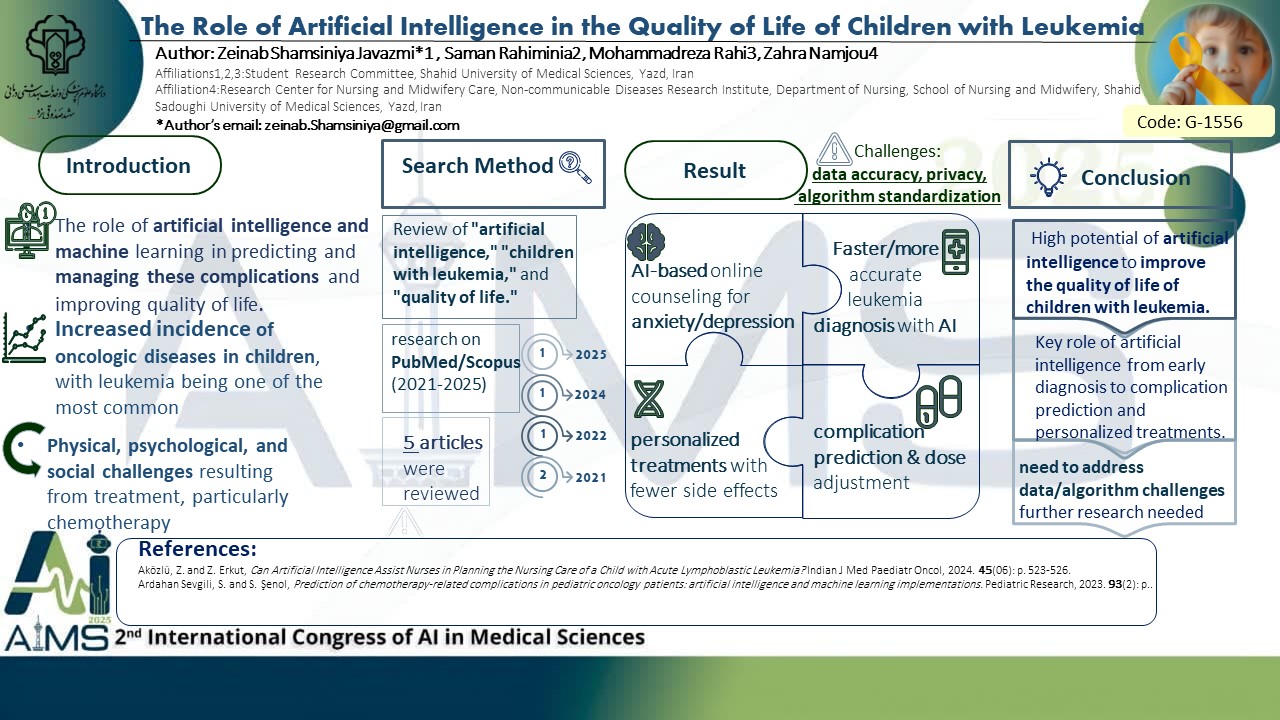The Role of Artificial Intelligence in the Quality of Life of Children with Leukemia
Code: G-1556
Authors: Zeinab Shamsiniyajavazmi * ℗, Saman Rahiminia, Mohammadreza Rahi, Zahra Namjou
Schedule: Not Scheduled!
Tag: Health Policy, Law & Management in AI
Download: Download Poster
Abstract:
Abstract
Introduction: The incidence of oncologic diseases in children has increased, with leukemia being one of the most common. Its treatment, particularly chemotherapy, can be effective but may also reduce the quality of life of patients. Children with leukemia face not only physical challenges but also psychological and social impacts. In this regard, artificial intelligence and machine learning can help predict and manage these complications, ultimately improving the quality of life of patients. Search Method: This study is a review article examining scientific research related to "artificial intelligence," "children with leukemia," and "quality of life." Sources were collected from reputable databases such as PubMed and Scopus within the time frame of 2020 to 2025. Articles without full-text access were excluded. Articles relevant to the study’s objective were included, and ultimately, 5 articles were reviewed Result: Reviews on the impact of artificial intelligence on the quality of life of children with leukemia highlight artificial intelligence-based systems that identify leukemia-related patterns, enabling faster and more accurate diagnoses. These systems predict complications and assist in adjusting drug dosages, reducing treatment risks. Artificial intelligence can analyze genetic and medical data to design personalized treatments, increasing effectiveness while minimizing side effects. Children with leukemia also face psychological challenges. Artificial intelligence-based technologies can help alleviate anxiety and depression through online counseling and cognitive-behavioral therapy. Despite advancements, challenges remain, including the need for precise data, patient privacy, and standardizing artificial intelligence algorithms. Addressing these issues is essential for the effective implementation of This innovative technology. Conclusion: Artificial intelligence has great potential to improve the quality of life of children with leukemia. From early diagnosis to complication prediction and personalized treatments, artificial intelligence plays a crucial role in enhancing care and treatment quality. However, challenges such as data security, accessibility, and algorithm accuracy must be addressed. Further research is needed to enhance the efficiency of artificial intelligence and fully utilize its potential in improving the lives of children with leukemia.
Keywords
Artificial Intelligence, Quality of Life, Children
